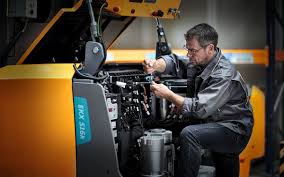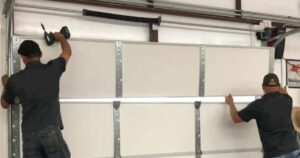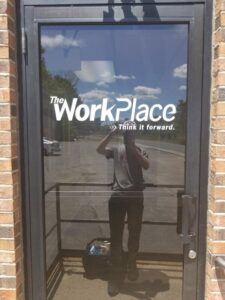
Forklift Repairs
In busy industrial settings—warehouses, construction sites, distribution centers, and manufacturing facilities—forklifts are among the most valuable pieces of equipment. They help move heavy loads, improve operational efficiency, and keep supply chains flowing. However, like any machine subjected to daily use, forklifts are prone to wear and tear. Ignoring the need for timely Forklift Repairs can cost your business far more than the immediate expense of maintenance.
In this article, we’ll explain how addressing forklift issues promptly not only extends the life of your equipment but also helps reduce long-term operational costs, minimize downtime, and boost workplace safety.
The Hidden Costs of Delayed Forklift Repairs
Forklift issues rarely happen all at once. Problems develop gradually—unusual noises, slow lift speeds, or fluid leaks may go unnoticed or be brushed aside as minor inconveniences. However, delaying Forklift Repairs can create larger, more expensive problems. Here’s how:
1. Increased Repair Costs Over Time
What begins as a minor mechanical issue can quickly spiral into a major failure. For instance, a small hydraulic leak might be resolved quickly with a hose replacement. But left unattended, it could damage the entire hydraulic system or affect the braking mechanism. Repairing or replacing major components is significantly more expensive than addressing early warning signs.
2. Unplanned Downtime
Every minute a forklift is out of commission costs your business time and money. Missed delivery deadlines, interrupted workflows, and increased labor costs due to inefficiencies are all consequences of delayed Forklift Repairs. In high-volume operations, one non-functional forklift can cause bottlenecks that ripple across the entire operation.
3. Accelerated Wear on Other Equipment
When one forklift is down, others in the fleet are pushed harder to compensate. This can lead to overuse and premature wear on other machines, increasing the risk of additional breakdowns and repair needs.
Timely Forklift Repairs: An Investment, Not a Cost
Many business owners and operations managers mistakenly see repairs as an unwanted expense. In reality, regular maintenance and prompt Forklift Repairs should be viewed as an investment in your equipment and your business.
1. Extended Equipment Lifespan
Just like a car, a forklift that receives timely maintenance and repairs can operate efficiently for many more years. Taking action early means small issues are caught and corrected before they shorten the lifespan of the machine. Well-maintained forklifts can remain operational for over a decade, saving you the significant cost of premature replacement.
2. Improved Fuel and Energy Efficiency
Forklifts in poor condition—whether gas, diesel, or electric—often consume more energy to perform the same tasks. Timely Forklift Repairs ensure that engines, batteries, and hydraulic systems run efficiently, helping reduce fuel or electricity costs over time.
3. Enhanced Workplace Safety
Faulty brakes, malfunctioning steering, or worn tires aren’t just mechanical problems—they’re serious safety hazards. Accidents involving forklifts can cause severe injuries, property damage, and regulatory penalties. Timely repairs significantly reduce the risk of accidents, keeping both your employees and your business protected.
Common Signs Your Forklift Needs Repair
Being proactive starts with recognizing the signs that Forklift Repairs are needed. Look out for the following red flags:
-
Unusual noises: Grinding, squealing, or knocking sounds may indicate transmission, brake, or engine issues.
-
Slow or jerky lifting: Hydraulic or mast problems can cause lifting issues.
-
Fluid leaks: Hydraulic, brake, or coolant fluid leaks should never be ignored.
-
Dashboard warning lights: Modern forklifts often come equipped with diagnostic alerts—pay attention to them.
-
Overheating: This could signal cooling system failure or overworked components.
Employees who operate forklifts daily should be encouraged to report abnormalities immediately. A simple inspection checklist and reporting system can be instrumental in catching issues early.
Choosing a Qualified Forklift Repair Provider
The effectiveness of your repair strategy depends heavily on who handles the job. Partnering with a certified and experienced technician or service provider ensures that Forklift Repairs are done correctly, using proper parts and following manufacturer specifications.
When evaluating a repair service provider, consider:
-
Experience and certifications: Look for factory-trained or OEM-certified technicians.
-
Response time: Timely repairs mean minimal downtime, so choose a provider that offers fast turnaround or mobile service.
-
Parts availability: A provider with access to OEM or compatible parts will reduce delays.
-
Preventive maintenance programs: Many providers offer scheduled service plans to help prevent major failures before they occur.
Preventive Maintenance and Scheduled Repairs
The best way to reduce the frequency of emergency Forklift Repairs is to implement a preventive maintenance program. Scheduled inspections and routine maintenance tasks—such as oil changes, battery checks, and brake inspections—help identify potential problems before they become costly.
Most manufacturers recommend routine servicing based on hours of operation (typically every 250 hours). Sticking to a service schedule not only reduces the risk of breakdowns but also maintains your forklift’s warranty and resale value.
Financial Benefits: Cost Comparison
To better understand the financial impact of timely Forklift Repairs, consider the following comparison:
| Scenario | Estimated Annual Cost |
|---|---|
| Timely Repairs and Maintenance | $2,000 – $4,000 |
| Emergency Repairs + Downtime | $7,000 – $15,000 |
| Replacement Forklift | $25,000 – $50,000+ |
It’s clear that proactive maintenance and repair are far more economical than reactive strategies or full equipment replacement.
Final Thoughts
Ignoring small mechanical issues in your forklift may seem harmless in the short term, but the long-term costs of delayed repairs are anything but minor. Timely Forklift Repairs protect your equipment investment, reduce operational costs, prevent workplace accidents, and keep your business running smoothly.

